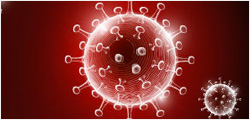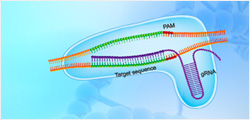| Species |
Human |
| Protein Construction |
MCP‑3 (Gln34-Leu109)
Accession # Q7Z7Q8 |
|
| Purity |
> 98% as analyzed by SDS-PAGE |
| Endotoxin Level |
< 0.2 EU/μg of protein by gel clotting method |
| Biological Activity |
The EC50 value of human MCP‑3/CCL7 on Ca2+ mobilization assay in CHO-K1/ Gα15/hCCR1 cells (human Gα15 and human CCR1 stably expressed in CHO-K1 cells) is less than 1.5 μg/ml. |
| Expression System |
CHO |
| Apparent Molecular Weight |
10~18 kDa, on SDS-PAGE under reducing conditions. |
| Formulation |
Lyophilized after extensive dialysis against PBS. |
| Reconstitution |
It is recommended that this vial be briefly centrifuged prior to opening to bring the contents to the bottom. Reconstitute the lyophilized powder in ddH₂O or PBS up to 100 μg/ml. |
| Storage & Stability |
Upon receiving, this product remains stable for up to 6 months at lower than -70°C. Upon reconstitution, the product should be stable for up to 1 week at 4°C or up to 3 months at -20°C. For long term storage it is recommended that a carrier protein (example 0.1% BSA) be added. Avoid repeated freeze-thaw cycles. |
| Target Background |
Chemokine (C-C motif) ligand 7 (CCL7) is a small cytokine that was previously called monocyte-specific chemokine 3 (MCP-3). Due to CCL7 possessing two adjacent N-terminal cysteine residues in its mature form, it is classified within the subfamily of chemokines known as CC chemokines. CCL7 specifically attracts monocytes, and regulates macrophage function. It is produced by certain tumor cell lines and by macrophages. This chemokine is located on chromosome 17 in humans, within a large cluster containing many other CC chemokines and is most closely related to CCL2. CCL7 can signal through the CCR1, CCR2 and CCR3 receptors. |
| Synonyms |
C-C motif chemokine 7; Small inducible cytokine A7; CCL-7; Monocyte chemotactic protein 3; MCP3; MARC |
For laboratory research use only. Direct human use, including taking orally and injection and clinical use are forbidden.

































